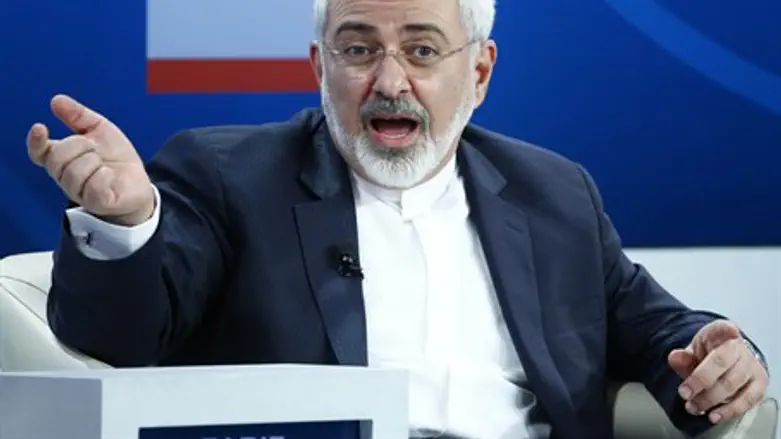
Just two days after saying Iran and the West were “closer than ever” to a nuclear deal, Iran's foreign minister said Sunday night some differences still remained between his country and the six powers.
"Still nothing is clear ... some differences remain and we are trying and working hard," the minister, Mohammad Javad Zarif, was quoted by Reuters as having told reporters.
After already having extending the talks several times, Iran and the six major powers set a deadline of June 30 to reach a final deal, but when they once again failed to meet that deadline, they agreed to extend the deadline to July 7 - this coming Tuesday.
On Saturday, Iran and world powers said they made progress on future sanctions relief for Iran, but remained divided on issues such as lifting United Nations sanctions and the development of advanced centrifuges.
Diplomats close to the negotiations said they had tentative agreement on a mechanism for suspending U.S. and European Union sanctions on Iran but the six powers had yet to agree on a United Nations Security Council resolution that would lift UN sanctions and establish a means of re-imposing them in case of Iranian non-compliance with a future agreement.
Hours after Zarif made the comments Friday on being close to a deal, a senior American official raised the possibility that the talks could be extended even beyond Tuesday if an agreement is not reached.
Asked if Iran and the major powers were "exceedingly close" to a deal whether the talks might go past that deadline, the official told reporters, "Is it conceivable that we would go past the 7th? Sure, it's conceivable ... But ... we want to get this done as soon as possible."
Israel, meanwhile, continues to warn over the impending deal. A senior Israeli official on Saturday night told Arutz Sheva that the permanent deal is worse than the interim agreement reached between the sides in April “because not only does it not undermine Iran’s existing nuclear infrastructure, it will partially remove the sanctions and allow Iran to continue to support terrorism in Israel and worldwide.”
The official was followed several hours later by Prime Minister Binyamin Netanyahu, who issued yet another warning against the agreement, saying it is “not a breakthrough, but a breakdown”.
"The transaction crystallizes the way for Iran to manufacture cores for a great many atomic bombs, and also allow hundreds of billions of dollars to flow to Iran to serve its aggression and terror campaign around the world," said Netanyahu. "This is a bad deal."
"This is not less bad, and I think even worse, than the deal with North Korea which led to a nuclear arsenal being built in North Korea," he added, referring to a 1994 agreement which eventually enabled and strengthened the militaristic dictatorship.

